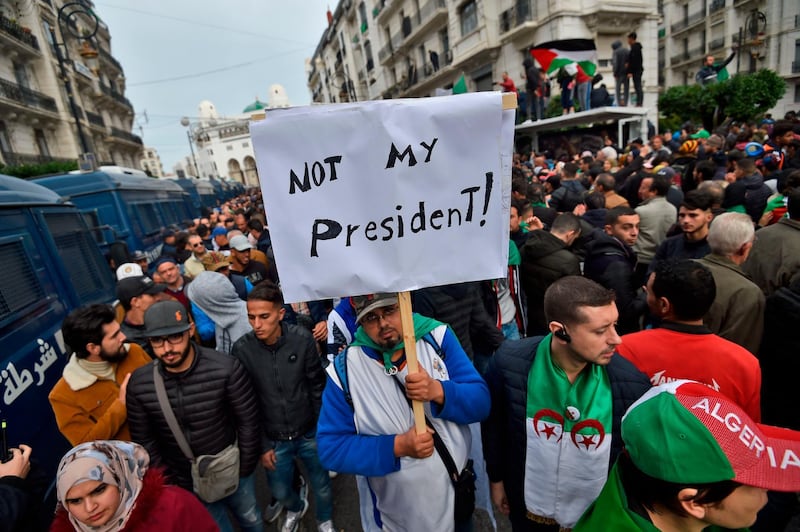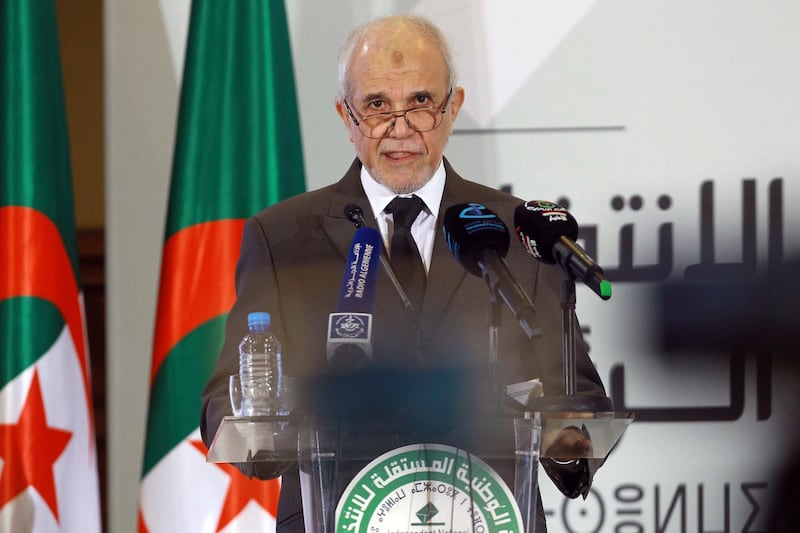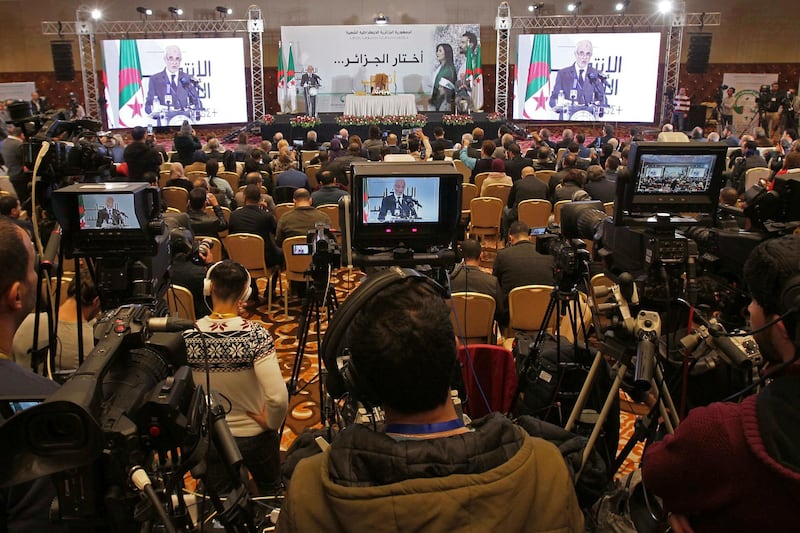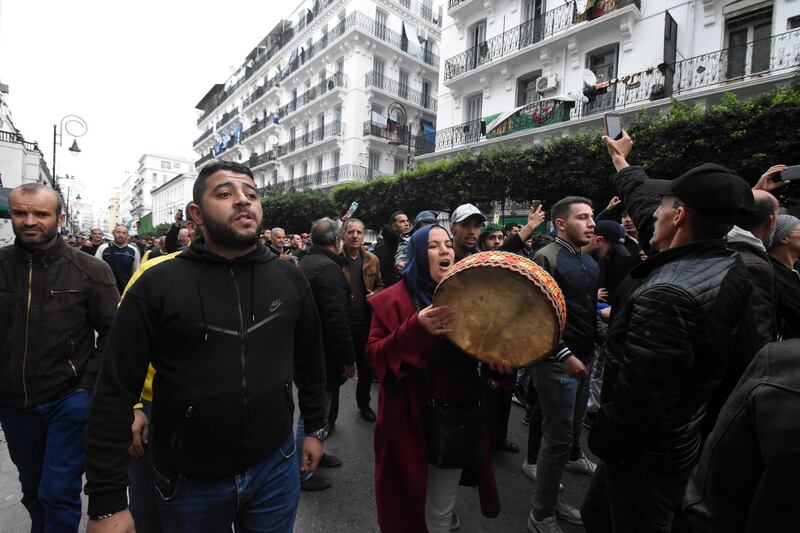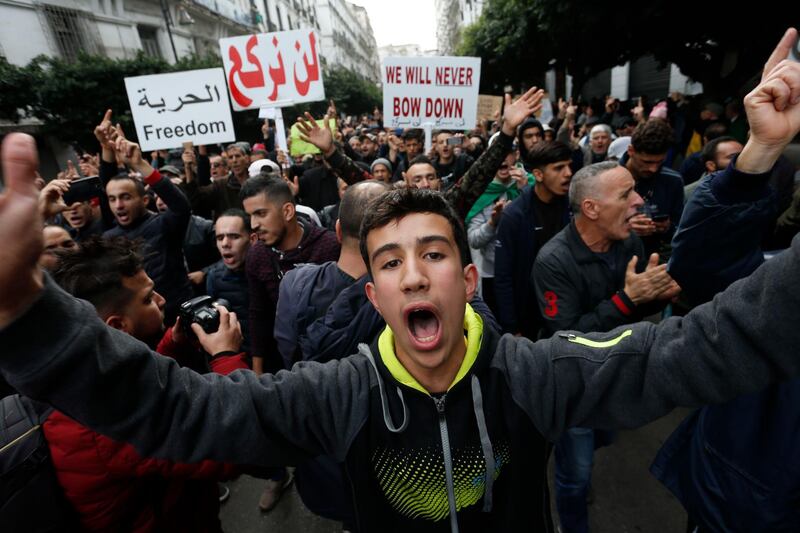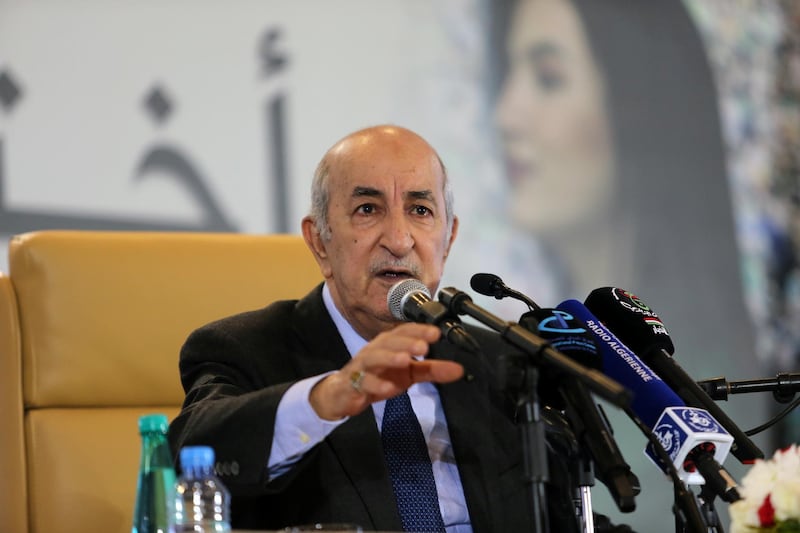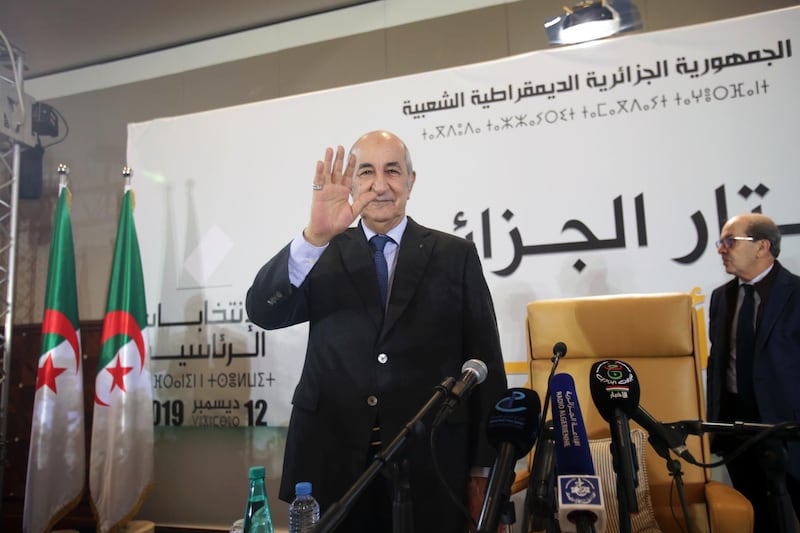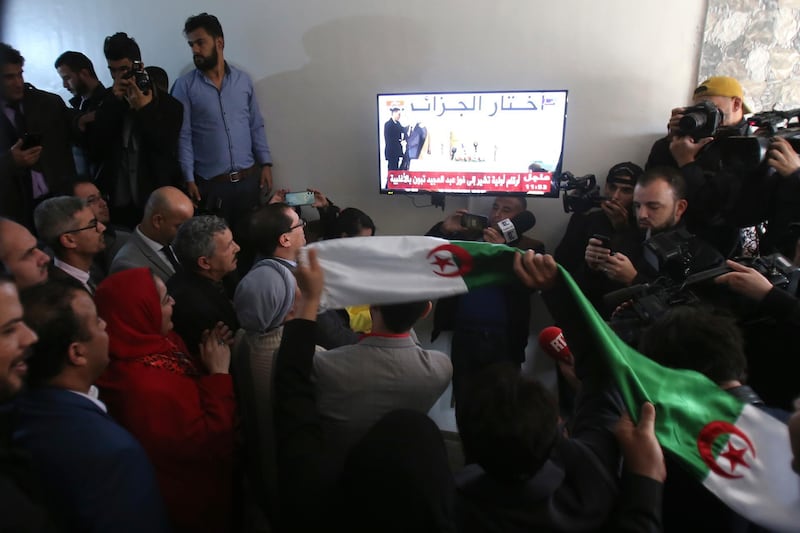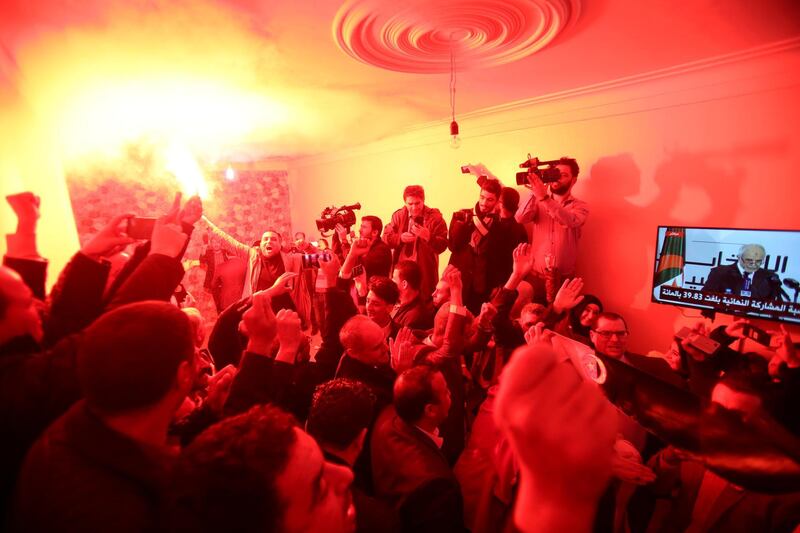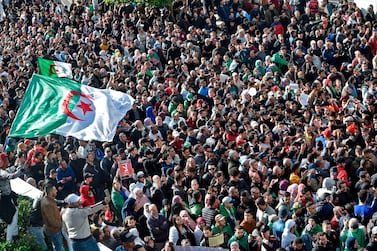A day after the results of Algeria’s deeply contentious presidential election, the country’s ongoing struggle for political reform invades most conversations in Algiers.
In a smoke-filled coffee shop in a middle-class area of the capital’s downtown, talk of next year’s Africa Cup of Nations and a bad season for Real Madrid is interlaced with rumination on what’s next for the oil-rich nation.
Although opinions are mixed about whether the election was something to celebrate or commiserate, all are in agreement that the current system has to change.
Drinking hamoud – a local fizzy, lemon-flavoured soda – Yousif, a waiter, and Karim, a journalism student, both 22, talk about the “firm and serious” tone the new president Abdelmadjid Tebboune took in his address to the nation on Friday.
They said they support Mr Tebboune, but they also support the protests. Change cannot happen without a president, but, by their assessment, the ongoing civil unrest will push him to keep his promise to put young people and development centre stage.
“He doesn’t fear anyone,” says Karim, who was not eligible to vote, but had wanted Mr Tebboune to win.
“I liked his campaign and what he will do for the country, and that he has a strong personality. His administration will be formed by young people between 22 and 25, and will boost tourism and the economy.”
Mr Tebboune, who will be sworn in on December 26, won Thursday’s presidential election with 58 per cent of the vote amid a low turnout and calls for a boycott from disillusioned protesters.
Protesters said the five candidates, who all served under or supported ousted former president Abdelaziz Bouteflika, are just the civilian face of military rule.
Many in the Hirak protest movement, which began almost ten months ago and forced Mr Bouteflika to step down in April, say they reject the election as illegitimate due to the lack of real opposition.
Members of the movement refused to stand in the election, believing the people would regard the move as chasing political power rather than honest change and turn against them. Others feared arrest, or were reluctant to run until the system is changed and opened up to those without military backing.
They have vowed to continue to take to the streets to demand complete political reform.
But to the minority in favour of the election, the promise of a leader again after an eight-month absence offers stability and the return of the legislative power needed to make real change.
Leading the Hirak movement are young people who face high unemployment, a low-quality education and a lack of cheap housing. These are significant issues for a population of which more than two thirds are under 30.
Farouk, 26, a recent graduate who works in a home appliance shop, drinks an espresso with the lacklustre body language of someone who has lost their confidence.
He works from 8am until 4pm every day for just Dh612 per month, and says he was one of the best students in his class but there are no opportunities in Algeria for people like him.
“They didn’t choose Tebboune because he is a good leader but because he is the best of a bad bunch,” he says.
“I am against the regime, the old one and the new. The new president will not change anything – we are just turning in circles. We want a new system, elected by the people.”
Farouk explains that with the way things are run under the current system, his only chance at a future is to emigrate.
“As a young man my priority right now is to leave Algeria,” he says. He has applied for a visa in Canada, and jobs in Germany and Austria.
“I would prefer to stay in Algeria. I am not someone who wants to go to the West to change my lifestyle and live like a European. I would rather stay here if I could get a better and stable life, but the government is forcing young people to leave.”
It is a sentiment echoed by many other young people, including two workers at the cafe, a traditionally male-dominated space, which is dotted with pictures of tourist sites like the Arc de Triomphe and is named after French composer Daniel Auber.
Algeria was ruled by France until independence in 1962 after a bloody war; 1.7 million Algerians now live in France, according to the World Population Review.
“The elections were rigged, for sure. We don’t recognise [Tebboune] as the president,” says Idrif, 21, who wears a top emblazoned with the word “PARIS”.
“There is no future in Algeria; the future is in Europe,” he says, pointing with a wry smile to a statue of the Eiffel Tower on top of a pastry warmer.
“We must fly for our future,” says his colleague Atif, 19.
“I will go [to France] to work on a farm. Or just get married to get the papers.”
